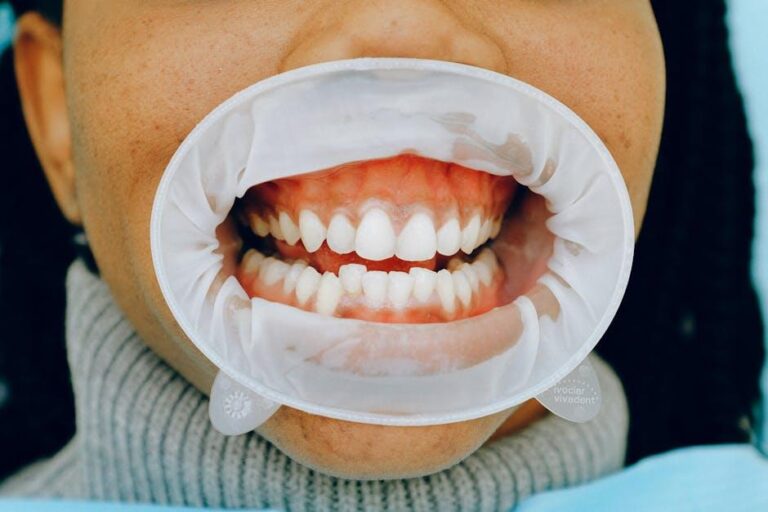
Poor Oral Health Potentially Linked To Chronic Health Problems – U.S. News & World Report
Oral health is often overlooked when considering overall well-being, but according to a recent U.S. News & World Report analysis, poor oral hygiene may be a significant contributor to various chronic health problems. This article dives deep into the complex relationship between oral health and systemic diseases, highlighting why maintaining a healthy mouth could be key to preventing serious health conditions.
Introduction: Why Oral Health Matters More Than You Think
Many people think cavities and gum disease are limited concerns isolated to the mouth. However, emerging research demonstrates a strong connection between oral infections and chronic illnesses such as heart disease, diabetes, and respiratory conditions. The mouth can be a gateway for bacteria and inflammation that potentially affect your entire body.
Understanding these links not only motivates better daily oral care but also urges healthcare providers to incorporate dental health screenings in routine medical assessments.
The Link Between Poor Oral Health and Chronic Disease
Research shows that conditions like periodontitis (severe gum disease) can trigger or worsen systemic chronic diseases through inflammation and bacterial infection. Here’s a closer look at some of the major health problems linked to poor oral health:
1. Cardiovascular Disease
Inflammation caused by periodontal disease may increase the risk of clogged arteries, leading to heart attacks and strokes. Oral bacteria can enter the bloodstream and contribute to arterial plaque formation, which compromises cardiovascular health.
2. Diabetes
There is a two-way relationship between diabetes and gum disease. High blood sugar can worsen gum infection, while severe periodontitis can impair blood sugar control in diabetic patients, making management of diabetes more challenging.
3. Respiratory Illnesses
Bacteria from the mouth can be inhaled into the lungs, contributing to respiratory infections such as pneumonia, especially in older adults and hospitalized patients.
4. Pregnancy Complications
Poor oral health has been associated with premature births and low birth weight babies, emphasizing the importance of dental care during pregnancy.
How Oral Bacteria Impact Your Body
Bacteria found in your mouth aren’t just confined locally; they can spread to other parts of the body causing systemic inflammation and infection. The following table summarizes key oral bacteria and their potential health implications:
| Oral Bacteria | Associated Health Issues | Mechanism |
|---|---|---|
| Porphyromonas gingivalis | Heart disease, Alzheimer’s, Diabetes | Triggers inflammation and vascular damage |
| Streptococcus mutans | Infective endocarditis, Cavities | Adheres to heart valves, promoting infection |
| Fusobacterium nucleatum | Colorectal cancer, Respiratory infections | Invades tissues and enhances tumor growth |
Benefits of Maintaining Good Oral Hygiene
Practicing consistent oral care contributes more than just a bright smile — it supports overall health and helps mitigate risks associated with chronic diseases.
- Reduces bacterial load and inflammation in the mouth
- Decreases risk of heart disease and stroke
- Improves blood sugar control in diabetic patients
- Prevents respiratory infections, especially in vulnerable populations
- Lowers chances of pregnancy complications
Practical Tips to Protect Your Oral and Overall Health
Improving oral health doesn’t require complicated routines. Here are some simple, effective tips recommended by dental and medical professionals:
- Brush your teeth twice a day using fluoride toothpaste for at least two minutes.
- Floss daily to remove plaque and food particles between teeth.
- Visit your dentist regularly for checkups and professional cleaning.
- Limit sugary foods and drinks that feed harmful bacteria.
- Quit smoking and avoid tobacco products to reduce gum disease risk.
- Maintain a balanced diet rich in vitamins and minerals to support oral tissues.
- Manage chronic diseases like diabetes by following your healthcare provider’s instructions.
Case Study: Oral Health and Heart Disease
In a landmark study published via U.S. News & World Report, researchers tracked over 1,000 adults with varying levels of gum disease. Those with severe periodontitis were 25% more likely to develop heart disease over five years compared to individuals with healthy gums. The study reinforced the role of inflammation and bacterial infection originating in the mouth as contributing factors to cardiovascular risk, prompting calls for integrated dental and medical care.
Real-life Experience: How Oral Care Changed My Health
Sarah, a 52-year-old woman from Ohio, shared her story with U.S. News & World Report: “After years of neglecting my oral hygiene, I developed severe gum disease. My doctor noticed my blood sugar was rising, and after dental treatment, my diabetes management improved significantly. It’s incredible how much my oral health affected my overall condition.” Such testimonials underscore the profound impact oral care can have on chronic disease outcomes.
Conclusion: Taking Control of Your Oral and Systemic Health
Poor oral health is increasingly recognized as a serious factor linked to chronic systemic diseases. The mouth is a mirror reflecting one’s general health, and ignoring oral hygiene can have broader repercussions than many realize. By adopting effective dental care habits and understanding the intricate relationship between oral bacteria and the body, you can protect yourself from various chronic ailments.
As highlighted by U.S. News & World Report, the future of healthcare lies in holistic approaches integrating both dental and medical disciplines. Take charge today — brush, floss, and schedule that dental visit. Your heart, lungs, and body will thank you.


